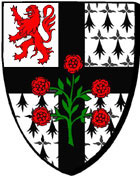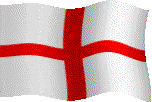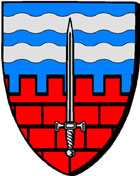
Encyclopédie Marikavel-Jean-Claude-EVEN/Encyclopaedia/Enciclopedia/Enzyklopädie/egkuklopaideia
 |
|||

England Angleterre |
 |

Somerset Bro-Saoz |
|
Bath Aquae Sulis * Aque Calidae * Aquae Minervae |
| pajenn bet digoret e 2001 | page ouverte en 2001 |
* forum du site Marikavel : Academia Celtica |
dernière mise à jour 23/06/2025 21:33:30 |
![]()
|
Définition / Displegadur : Ville d'Angleterre; comté de Somerset; sur la rivière Avon. Population : 50800 hab. en 1863; 82800 hab. en 1979; |
|
![]()
|
Armoiries; blasson / Ardamezioù; skoed : "muraillé de gueules et maçonné de sable, au chef d'azur ondé d'argent; une épée d'argent en pal brochant le tout" "mogeriet en gwad ha sabel, e gab en glazur kommek en arc'hant, ur c'hleze en arc'hant peuliet balirant" |
|
![]()
|
i
Extrait de la carte Ordnance Survey : Map of Roman Britain |
![]()
|
Histoire - Istor : Le territoire semble de toute évidence avoir appartenu aux Dobunni avant d'avoir appartenu aux Belgae. Il est tombé aux mains des Romains lors des campagnes militaires menées dans le sud de l'Ile de Bretagne, sur ordre du gouverneur Aulus Plautius, soit vers 47après J.-C. Il est fort possible qu'il ait existé un camp romain en bordure de la Fosse Way, à proximité des sources d'eau chaude. Dans le cadre de m'organisation du système routier romain, elle fut un relais important sur la Fosse Way, route diagonale qui relie des capitales Isca Dumnoniorum / Exeter, au sud-ouest, à Lindum Colonia / Lincoln; au nord-est, en passant par Lindinis / Ilchester, Aquae Sulis / Bath, Corinium / Cirencester, et Ratae Coritanorum / Leicester .
Fosse Way
Bath fait par la suite partie de la Britannia Prima, qui a Corinium / Cirencester pour capitale. Certains historiens ont proposé de voir dans la forme anglo-saxonne Bath une relation avec le nom de la fameuse bataille du Mons Badonicus, gagnée e roi Arthur sur les Saxons fin Vème / début VIème siècles, mais dont l'identification très discutée n'est pas encore établie de façon définitive. * Nennius, 56 : "Duedocim fuit bellum in monte Badonis, in quo corrueront in uno die nongenti sexaginta viri de uno impetu Arthur, et nemo prostavit eos nisi ipse solus, et in omnibus bellis victor exatit" "The twelf battle was on Badon Hill and in it nine hundred and sixty men fell in one day, from a single charge of Arthur's, and no one laid them low save he alon, and he was victorius in holl is campaigns" Le dernier prince britto-romain d'Aquae-Sulis a été Boduocus. Bath est tombée aux mains des West-Saxons par la victoire de Ceawlin à Deorham sur les Britto-romains en 577. |
![]()
| Patrimoine; Archéologie / Glad; Arkeologiezh
:
Reconstitution archéologique des bains romains d'Aquae Sulis / Bath Extrait de la plaquette The Roman Baths, publication de Bath Archeological Trust; 1978
|
![]()
|
Dédicaces archéologiques ./ Dedioù arkeolgel : Un autel a été dédicacé à Sulis / Minerve, par Quintus Pompeius Anicetus (RIB 148). (cf. Rivet & Smith ; The Place-names of Roman Britain, p 252) - Sulis : (RIB 141d, 155), forme génitive (cf. Rivet & Smith ; The Place-names of Roman Britain, p 256) - Suli : (RIB 143, 144, 146-50), forme dative (cf. Rivet & Smith ; The Place-names of Roman Britain, p 256) |
![]()
|
Étymologie / Gerdarzh : A. Pour Aquae Calidae * Rivet & Smith (1979-1982) : - Ptolemy II, 3, 13: AQUAE CALIDAE, a polis of the Belgae; - AI 4863 (Iter XIV): AQUIS SULIS, var. SOLIS - Ravenna -- 1064 (= R&C 20) : APAUNARIS, with Ravenna's form Apaumaris was taken by
R&C to refer to a separate place "somewhere N.E. of Exeter", but (a) its elements
suggest no meaning in British or Latin,
Dillemann explains Apaunaris as a corruption of *A Tamaris, but there are no
examples in the British section of such a
use of a, and (a lesser objection) Tamaris
Minerve (for -ae, genetive) has not
previously been related to the name of
Bath as it appears in our texts. R&C take
the entry at face-value on its appearance Ptolemy's name Aquae Calidae 'hot springs' is presumably that by which the place was first known, and has numerous Continental parallels in the names of what are today e.g. Vichy (France), Banolas (Catalonia), Caldas de Reyes (N.W. Spain) and Dzamal near the Romanian coast. It is noteworthy that Solinus mentions the fontes calidi of what is evidently Bath, together with the cult of Minerva there (see p. 85).
The nominative form of the goddess's
name is *Sulis not Sul as used to be said (Jackson; see note on pp. 42-43 of
RIB).
Her name is cognate with Irish súil 'eye', Texts from Bath name the goddess in the genitive, Sulis (RIB 141d, 155), and dative, Suli (RIB 143, 144, 146-50). As a place-name apparently on its own is Sulim (accusative, for nominative *Sulis) in TP, now Castel-Noëc (Morbihan, France). See also CORIA SOLILIORUM. IDENTIFICATION. The Roman spa at Bath, Somerset (ST 7564). The attribution of the place to the Belgae depends entirely on Ptolemy and the distribution of pre-Roman coins of the Dobunni suggests that it may be incorrect (see p. 121). Formes bretonnes anciennes : - Geoffroy de Monmouth : Kerbadum - Jésus Collège : Kaer Vaddon J.-C. Even : la forme bretonne pourrait être proche de *Kêr-Wazon. |
![]()
|
Sources; Bibliographie / Eien; Levrlennadur : * Eilert EKWALL : The Concise Oxford Dictionary of English Place-names. Clarendon Press. Edition 1980. * ALF RIVET & C. SMITH : Place-names of Roman Britain. B.T. Batsford Ltd. London. 1979; 1982. * Bath Archeological Trust : The Roman Baths. A guide to the Barths and Roman Museum. * Bath Official Guide Book. * Envois de : - V.J. Kite , Area Librarian, Central Library, Bristol, 30 juin 1982 et 24 septembre 1962; - D. .... Evans, Professor, Jesud College, Oxford, 01 ocobre 1982. |
![]()
|
Liens électroniques des sites Internet traitant de Bath / Aquae Sulis : * Bath Council : par défaut : Wikipedia français : Conseil de Bath et du Nord-Est du Somerset — Wikipédia * forum du site Marikavel : Academia Celtica * Autres pages de l'encyclopédie Marikavel.org pouvant être liées à la présente : http://marikavel.org/heraldique/bretagne-familles/accueil.htm http://marikavel.org/broceliande/broceliande.htm * solidarité nationale bretonne avec le département de Loire Atlantique : Loire-Atlantique * sauf indication contraire, l'ensemble des blasons figurant sur cette page ont été dessinés par J.C Even, sur bases de GenHerald 5. * Introduction musicale de cette page : Bro Goz Ma Zadoù, hymne national breton, au lien direct : http://limaillet.free.fr/MP3s/BroGoz.mp3 hast buan, ma mignonig, karantez vras am eus evidout go fast, my little friend, I love you very much |
![]()